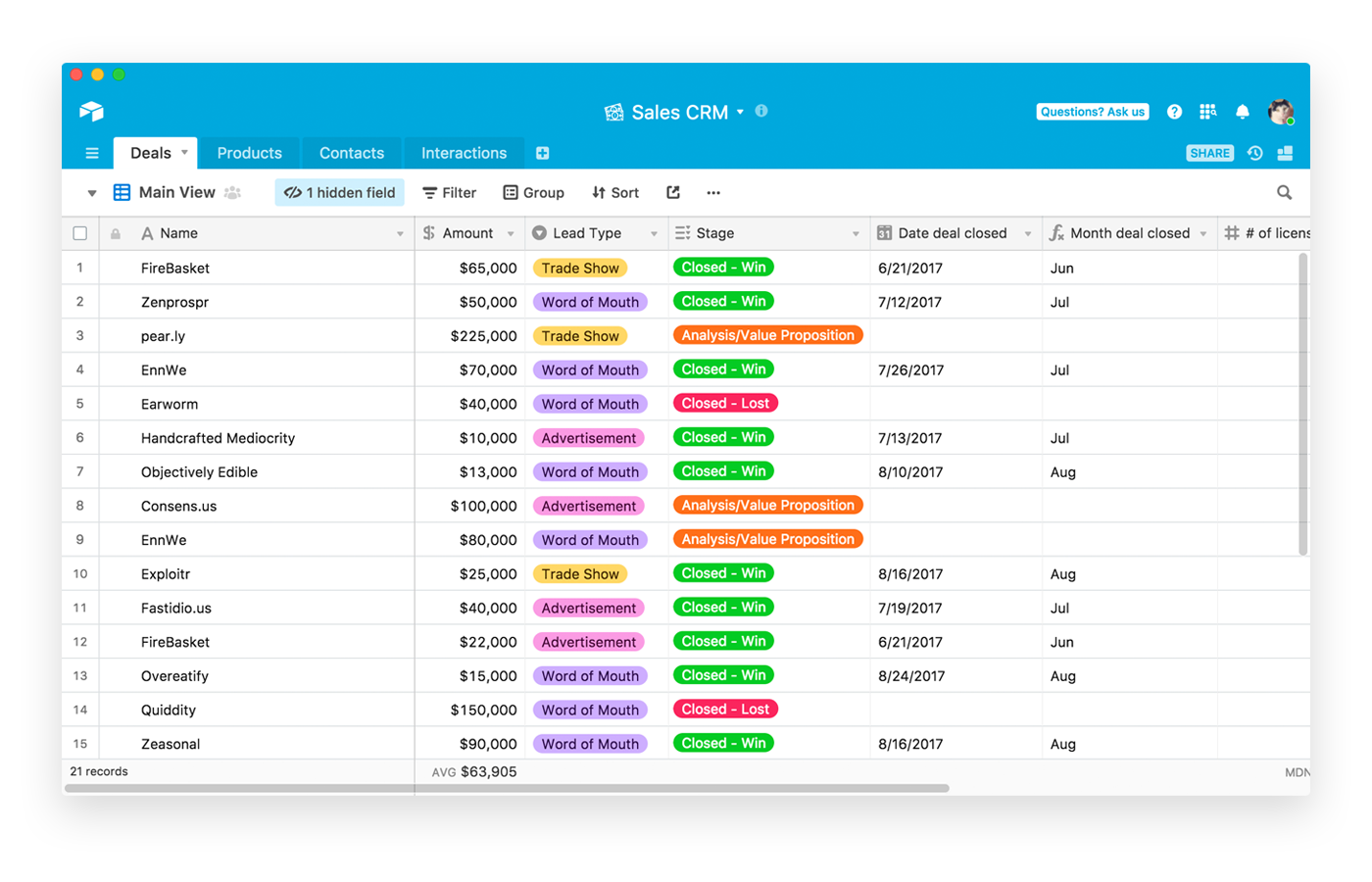
In a February paper, scientists at Alphabet-backed DeepMind describe what they call a “data-driven” approach for teaching AI to control computers. True general intelligence requires models that can not only read and write, but act when people ask it to do something.”Īdept isn’t the only one exploring this idea. You can’t ask to book you a flight, cut a check to a vendor or conduct a scientific experiment. “We think that AI’s ability to read and write text will continue to be valuable, but that being able to do things on a computer will be significantly more valuable for enterprise … odels trained on text can write great prose, but they can’t take actions in the digital world.
#AIRTABLE FUNDING ROUNDS SOFTWARE#
“We’re building a general system that helps people get things done in front of their computer: a universal AI collaborator for every knowledge worker … We’re training a neural network to use every software tool in the world, building on the vast amount of existing capabilities that people have already created,” Luan said. But the team insists that their technology is far more sophisticated than what RPA vendors like Automation Anywhere and UiPath offer today. “ith Adept, you’ll be able to focus on the work you most enjoy and ask our to take on other tasks … We expect the collaborator to be a good student and highly coachable, becoming more helpful and aligned with every human interaction.”įrom Luan’s description, what Adept is creating sounds a little like robotic process automation (RPA), or software robots that leverage a combination of automation, computer vision and machine learning to automate repetitive tasks like filing forms and responding to emails. “e’re training a neural network to use every software tool in the world, building on the vast amount of existing capabilities that people have already created.” Luan told TechCrunch in an interview via email.

This overlay will be able to respond to commands like “generate a monthly compliance report” or “draw stairs between these two points in this blueprint,” Adept asserts, all using existing software like Airtable, Photoshop, Tableau and Twilio to get the job done. But Adept’s co-founders, CEO David Luan, CTO Niki Parmar and chief scientist Ashish Vaswani, boil their ambition down to perfecting an “overlay” within computers that works using the same tools people do. At a product lab called Adept that emerged from stealth today with $65 million in funding, they are - in the founders’ words - “build general intelligence that enables humans and computers to work together creatively to solve problems.”
#AIRTABLE FUNDING ROUNDS CRACKED#
Six years later, a new team claims to have cracked the code to a universal AI assistant - or at least to have gotten a little bit closer.

Samsung later acquired Viv, folding a pared-down version of the tech into its Bixby voice assistant. The pitch was tantalizing - but never fully realized. In 2016 at TechCrunch Disrupt New York, several of the original developers behind what became Siri unveiled Viv, an AI platform that promised to connect various third-party applications to perform just about any task.


 0 kommentar(er)
0 kommentar(er)
